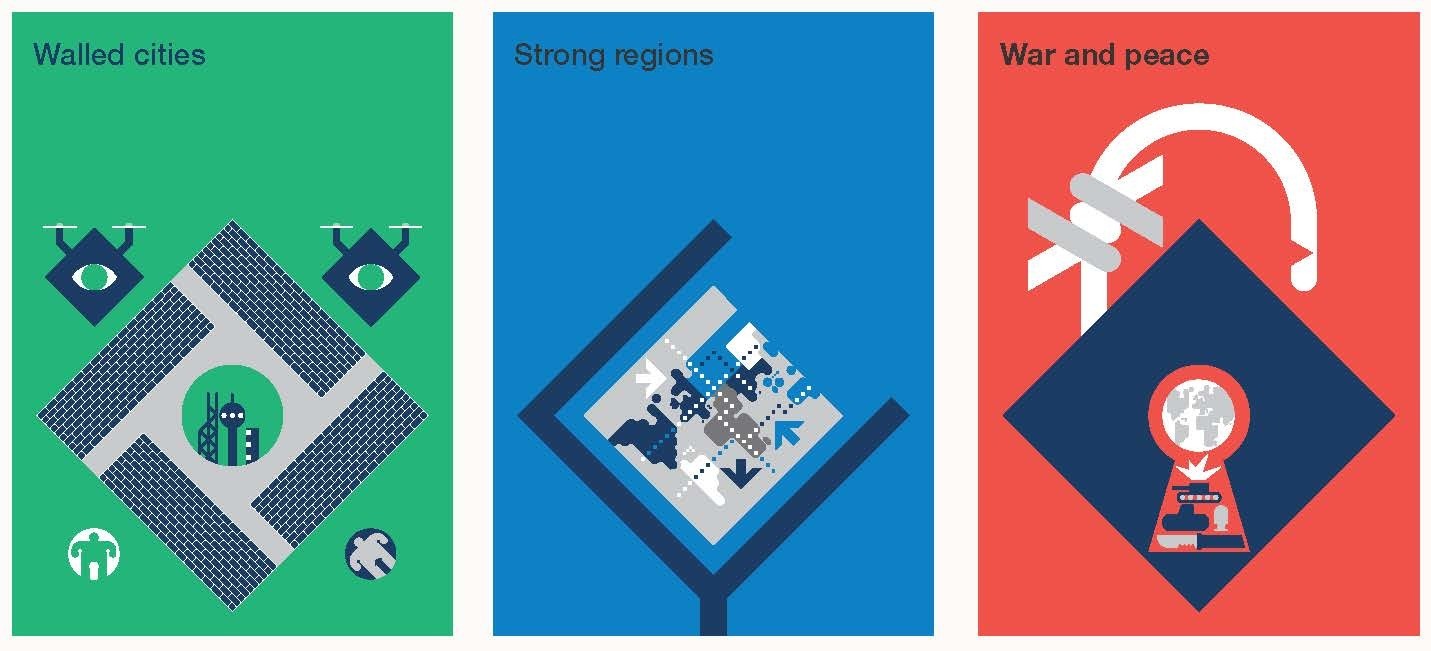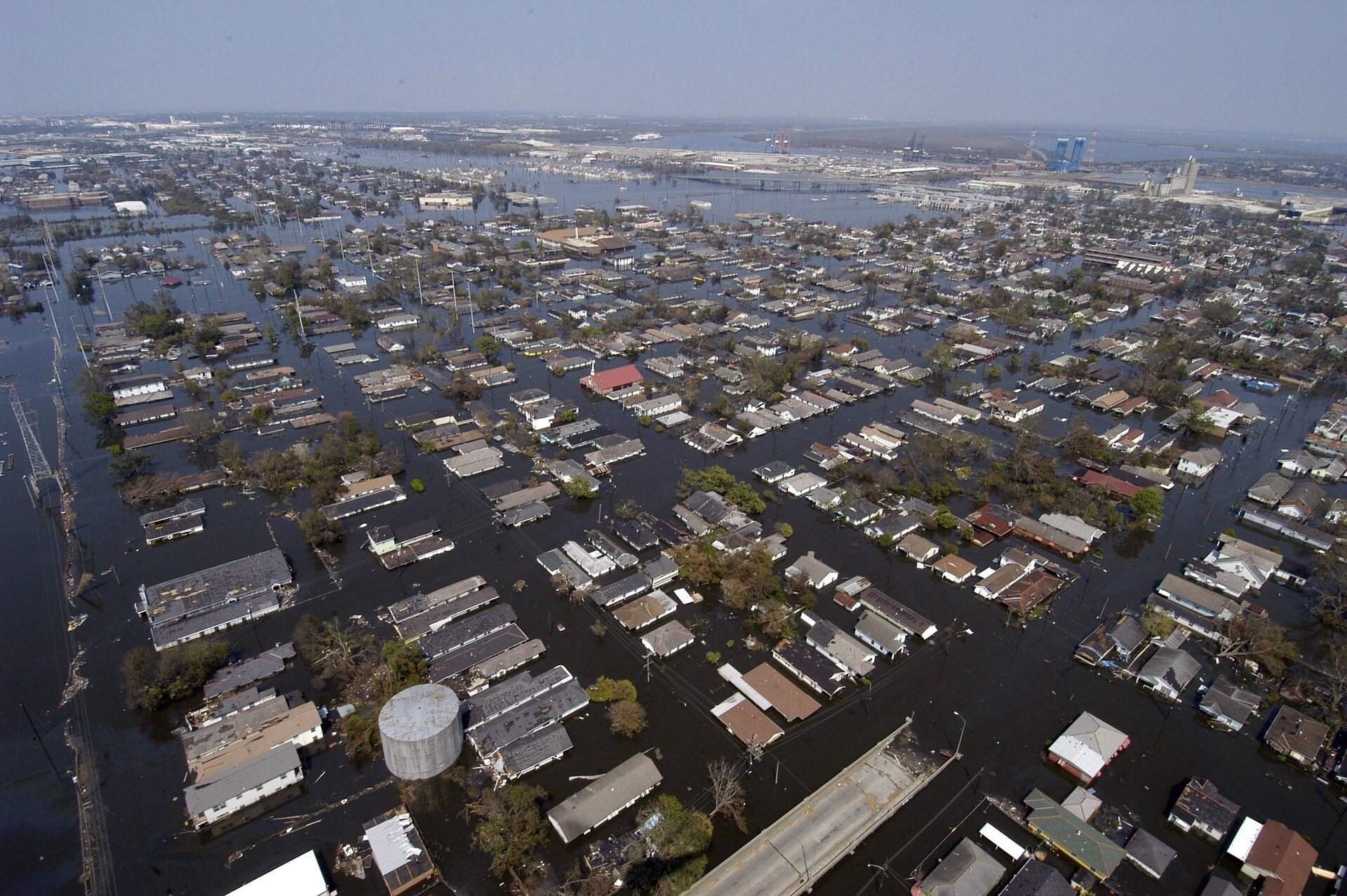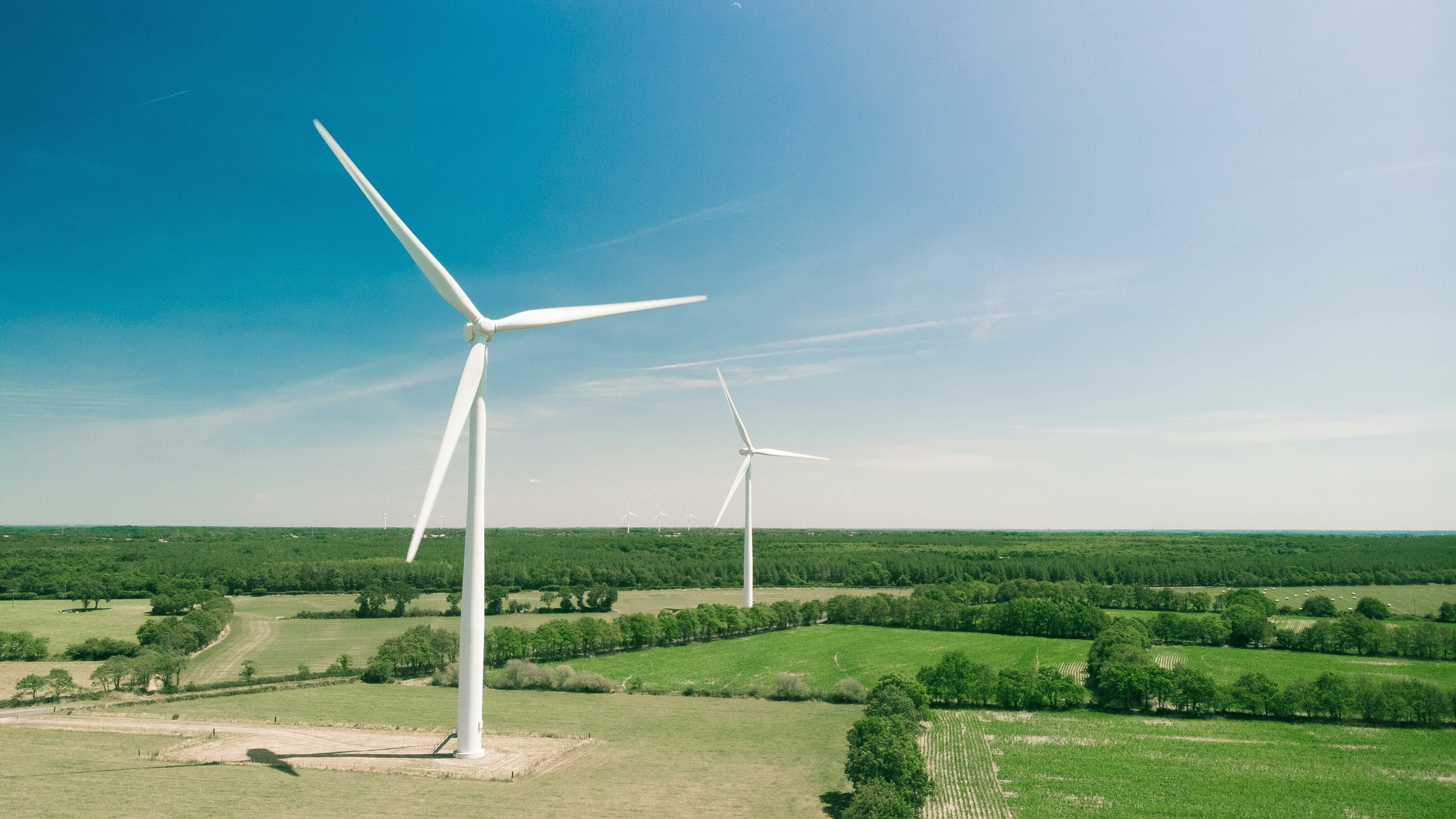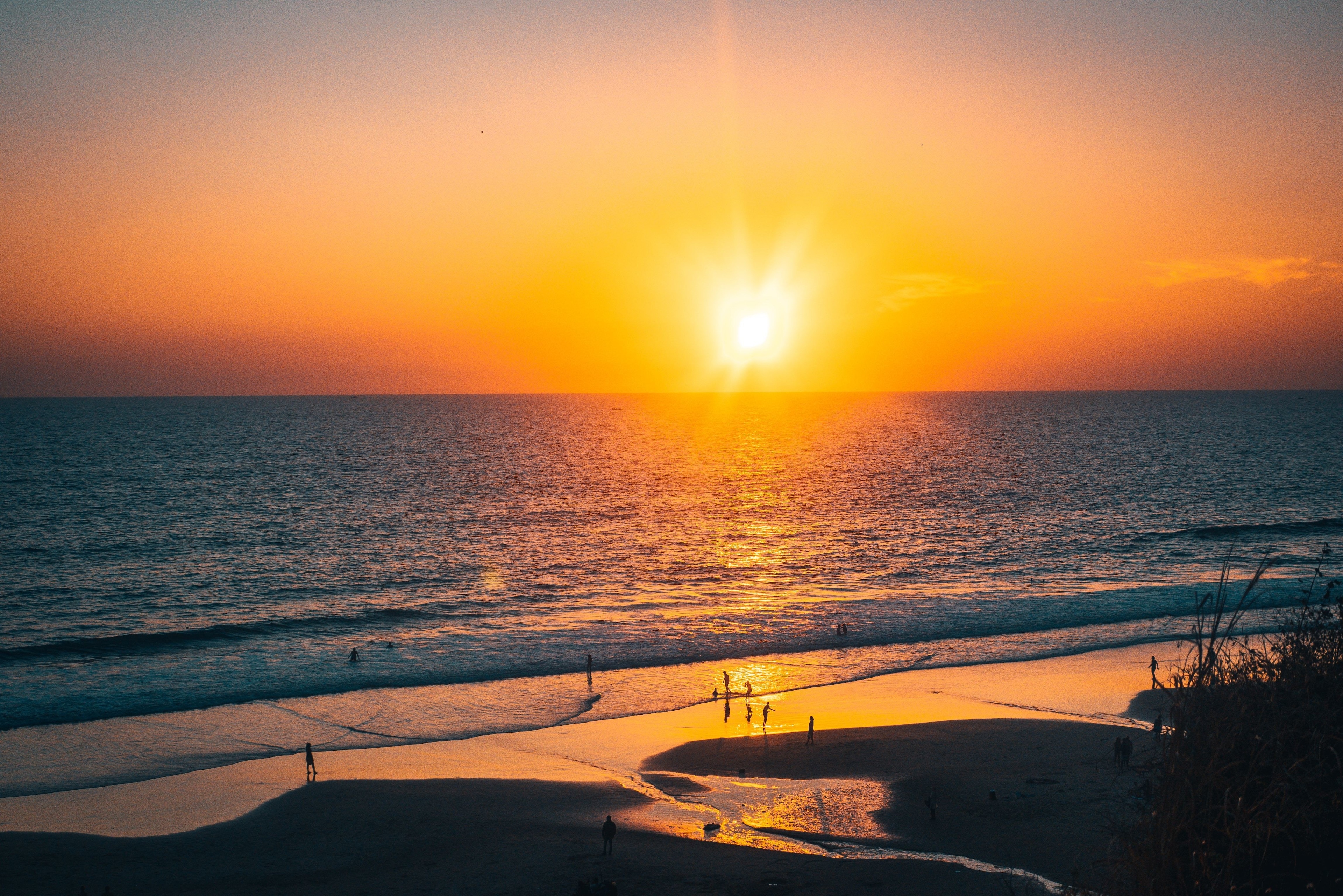What will the world look like in 2030?

Image: REUTERS/Michael Dalder

Get involved with our crowdsourced digital platform to deliver impact at scale
Stay up to date:
Global Risks
The geopolitical and international security landscape is in flux, challenging the assumption of continued social, political and economic progress that characterized the first 25 years after the end of the Cold War. Transformative shifts will have profound ramifications for the international security order. Imagine if we had a way to look into the future to get a better sense of what this new order entails?
How can we know what the future will hold and how do we avoid sleepwalking past the tipping point?
Scenario planning, unlike monitoring and best practices, looks at what is driving events rather than just anticipating the risks. Assessing what is plausible is not a precise science but it is a useful exercise to prepare for potential challenges and identify the right policies to improve future outcomes.
Over the course of the past year, the Forum has consulted with over 280 members from our global network to build three distinct scenarios to help us understand what the future security landscape might look like. Working with experts in six regions of the world, and with representatives from all sectors, we developed three scenarios for international security and explored their implications for all actors in society. Envisaging possible futures helps identify actions in the present which can change our current trajectory.
Before describing the scenarios themselves, it is important to stress that none of them are likely to manifest exactly as described; rather, the security landscape will probably include multiple elements from one or more of the scenarios, simultaneously.

Walled cities
In this scenario, states fail to meet the challenges of providing services to their population, causing more and more people to switch to private sector providers, at least those who still have the means to do so.
Public goods such as clean water and even fresh air become preciously traded commodities. The retreat of government as the guarantor of minimum basic services leaves society increasingly polarized between elites and an impoverished class with little social mobility.
In contrast, demographic mobility increases as large groups are forced to migrate, either because of climate change or in search of a living. Refugee camps expand and become permanent, assisted by private sector partnerships. However, their youth are increasingly drawn into gangs and virtual groups hostile to “the system”.
A shrinking class of taxpayers demands protection and accepts a more authoritarian rule as the price of keeping order. Walls go up. This works in the districts they identify as socially and economically critical, i.e. major cities.
Outside, the gangs seize territory and govern much like states had in the past. For actual states, domestic threats have become so intense that they have little capacity to engage in collective security action through international or regional organizations, which gradually wither away.
Responsibility for governance and service provision of all kinds moves away from national governments towards the city-states, which manage to connect to each other and thrive as an archipelago of safe islands in a sea of disorder.
Strong regions
In the second scenario, larger shares of wealth accumulate in the south and east, shifting power to regional hegemons that consolidate spheres of influence challenging sovereign states as the principal unit of global order.
Mutual respect for the new regional hegemons’ interests actually alleviates the tensions that had started to grow in the early decades of the 21st century in contested areas such as Eastern Europe, the Middle East and the Western Pacific.
Governments make increasingly effective use of surveillance and high-tech media systems to control their citizens with manufactured historical narratives and exaggerated projections of external threats, emphasizing themes of ethnic or religious difference.
New regional institutions are set up that fragment what was once global trade and the global commons (e.g. establishing regional internets). As these come to dominate international relations, the old UN and Bretton Woods institutions of global governance wither away.
In parallel, efforts to control global warming are dropped in favour of unilateral measures to adapt to the changes. There are efficiency losses in the retreat from globalization, but authoritarian elites mostly convince their people that this is an acceptable price to pay for stability.
Companies lose their independence as inter-regional trade is limited and they come increasingly under the informal control of the new regional governance institutions.
War and peace
In the third scenario, established powers remain in denial about the implications of power shifts and the impact of technological change.
Global trade falls and the major economies stagnate. The old key states of the world order turn inward and abandon collective action such as peacekeeping, rule-making and policing of the global commons, and policies to protect the environment.
A growing sense of lawlessness encourages emerging powers to test the status quo, sometimes with tacit or open encouragement from their major power allies.
Finally, unable to resolve competing visions of world order and geopolitical interest, a proxy war draws two of the great powers into major conventional conflict. The nuclear taboo is respected but despite dragging in a number of third-party allies, both sides fail to gain an advantage, achieving only mutual exhaustion. As an uneasy peace emerges, people’s minds return to the question of what kinds of norms and structures are needed to govern international relations.
Eager to restore global trade, private sector institutions take the lead, focusing on modest rules to govern peaceful use of the global commons.
Leadership positions in these new bodies are taken not by civil servants but by double-hatting industry and civil society leaders. The urgency of restoring the world’s economic health makes trade and investment relations a priority, and the social or “values” agenda, such as universal human rights, takes a back seat.
Indeed the notion of a universal set of values to which all peoples should aspire is abandoned as a paradigm of world order. A considerable amount of inequality emerges but is broadly accepted as the price of peace.
At a tipping point?
All three scenarios appear dystopian, because they are extrapolations of existing, negative trends. But the world does not need to arrive at these dystopias. There are many opportunities to change the outcome and shape a more secure world, as long as we have strong leadership and the right decisions are made and implemented at the highest level. This last point brings us back to the purpose of this exercise: to cast new light on decisions that need to be taken today. Despite great uncertainties on many fronts, we do not need a crystal ball to understand the world cannot afford to wait for a crisis to shock us into action. These scenarios can help identify potential inflection points and chart a new course for a future global security paradigm.
Read the three scenarios in full here.
Authors: Anja Kaspersen, Senior Director, Head of International Security, World Economic Forum, and Isabel de Sola, Practice Lead, International Security, World Economic Forum
Don't miss any update on this topic
Create a free account and access your personalized content collection with our latest publications and analyses.
License and Republishing
World Economic Forum articles may be republished in accordance with the Creative Commons Attribution-NonCommercial-NoDerivatives 4.0 International Public License, and in accordance with our Terms of Use.
The views expressed in this article are those of the author alone and not the World Economic Forum.
Related topics:
The Agenda Weekly
A weekly update of the most important issues driving the global agenda
You can unsubscribe at any time using the link in our emails. For more details, review our privacy policy.
More on Global RisksSee all
Gareth Byatt and Ilan Kelman
March 11, 2024
Andrea Willige
March 6, 2024
Richard Aster
November 15, 2023
Ian Shine and Rebecca Geldard
November 14, 2023
Andrea Willige
October 26, 2023
Simon Torkington
September 14, 2023






